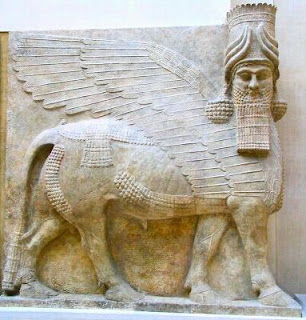This post links to RAnn's Sunday Snippets
As usual for these whiteboard posts, my comments are limited to the images and don't describe the whole class content. Click the image for a bigger version.
As usual for these whiteboard posts, my comments are limited to the images and don't describe the whole class content. Click the image for a bigger version.
Class starts with a quick review. That is, the kids tell me whom we've covered so far: God/ Adam & Eve/ Cain, Abel, Seth/ Enoch/ Methuselah/ Noah. I introduce Abram & Sarah. Brackets indicate 10 generations from Adam to Noah; and 10 more from Noah to Abram. As usual, a child objects to 'Abram'; I tell him God will change Abram's name in a few minutes.
The kids tell me about Mesopotamia. A quick map illustrates Abram's journey from Ur of the Chaldees to Canaan. While I draw they talk about the rivers, the people, the ziggurats. I draw a ziggurat. I mention Sumerian beer. They laugh.
When Abram gets to Canaan he makes an altar & offers a sacrifice [I add that beside the ziggurat]. We see that "offerings are typically done on something that gets the offering closer to heaven...such as...altars? Yes, or...mountains? Yes, or artificial mountains like...ziggurats! Yes." But on one occasion, a priest named Melchizedek offers bread and wine for Abraham. "The Mass mentions Melchizedek, so y'all pay attention at Mass and tell me when. He's the King of Salem, which means King of Peace. Whom do you think of when I say King of Peace? Jesus.Yes. Melchizedek, like Abel (and Isaac, who hasn't come up just yet), is a type of Christ."
I add Abraham's wife Sarah. Quick review: "God is...? Powerful? Yes, and...knows everything? Yes, he's 'omniscient'. And...powerful? You said that already. [I start to draw a heart] Love! God is love! Yes. Remind me what love always wants to do. Ummm...create! Yes. Love creates. So tell me about Abraham and Sarah. They were married. Yes, so...they were in love? Yes, so...what does love do? Create! So? So their love made babies! Well, not just yet." We discuss their sadness, and jump into the Hospitality of Abraham using this mosaic:
And this fresco:
One of the kids explains mosaics; I add that a fresco is painted on wet (fresh) plaster to make it permanent.
When Sarah later gave birth to their only son, Abraham & Sarah were so happy they named him Yitzhak, laughter. In English we call him Isaac. I tell the kids that the neighboring tribes worshiped false gods such as Baal and Moloch, to whom the people sacrificed their firstborn sons. So Abraham knew he was getting a good deal from his God who didn't seem to require that.
But years later, God wants Abraham to make that sacrifice; we use the mosaic to guide our discussion. I draw Mount Moriah and add Abraham's altar on top. A child asks how Isaac would have felt. I say he and his parents probably weren't surprised that God would eventually ask for this sacrifice; but they'd sure be happy to swap a sheep for a son!
Class is over when this line of discussion ends.
















